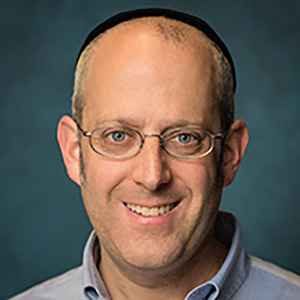
We have seen time and again that public figures, no matter how hard they try, can’t hide past mistakes. When you take on a public role, eventually the truth will come out. As the chair of the department of computer science at Yeshiva University (YU), I am no longer a private citizen, so it is safe to assume that my skeletons will eventually be made public. As such, I thought it wise to preemptively release the information and get ahead of the news cycle.
So, here is my first confession: when I was an undergraduate student at Yeshiva University, I received a C in medieval Jewish history, a C+ in intermediate Hebrew II, and a C- in calculus 1. It was not the professors’ fault in any one of those cases; I had wonderful professors (Rabbi Dr. Bernard Rosensweig, Dr. Richard Steiner, and Dr. Norman Rosenfeld, z”l, respectively.) I simply failed to perform at an adequate level. I know it is hard to imagine that someone who claims to be competent in any field could have possibly received multiple grades lower than an A-.
I hope the reader realizes that the two preceding paragraphs were completely tongue-in-cheek. It is true that I received those grades, but the gravity of receiving them was purposely dramatized ad absurdum. Those grades are not a dark secret that I must hide and, as you may guess given my past jobs and my current role in Yeshiva College, they did not limit my professional or academic careers.
Even the most accomplished people in the world have their fair share of failures, as do the rest of us. One of the things that separates those who succeed in the long term and those who become mired in mediocrity is a willingness to get up, dust oneself off, learn from the experience and move on in life a little bit wiser and a little bit more prepared than one was before. One who doesn’t learn from mistakes will go through life with the perspective of an inexperienced young child, always looking for someone or something to blame and never accepting responsibility or learning to do better the next time.
This brings me to my second “confession:” not only do I expect a lot of my students, but I also will not change a grade just because it is not what the student wanted or, in the student’s eyes, “does not reflect the amount of effort he put in.” Grades are earned based on performance and results, not based on effort. Giving a student an “A” for effort might be a useful approach to grading in some contexts at the elementary school level, but in college it is a disservice to the student, as it misleads them regarding what the real world, which they will be joining shortly, is like. In the real world people are hired, paid and remain employed based primarily on what value they produce, not based on effort. (Although effort will come in to play in certain limited situations, those are the exceptions and not the rule.)
At this time of year students are receiving their final grades in the classes they took this spring. There are some cases in which one, or a few, poor grades will have a lasting impact. But in the vast majority of cases, one or a few weak grades will have no lasting effect on your life. If you earned a worse grade than you had expected or hoped for, you have been given an opportunity to grow into a more resilient, balanced and self-aware person by accepting it with equanimity and planning out how you will do better next semester.
Wise students will put in their best effort, learn lessons when they fall short, and, with God’s help, go on to succeed in all aspects of life. Those who lose perspective and overreact to a few poor grades in college are forming habits which will make it harder for them to function effectively in adult life, when the stakes and repercussions are often much greater and longer lasting.
By Judah Diament
Judah Diament is a department chair and clinical associate professor of computer science and program director of undergraduate data science at Yeshiva University.













